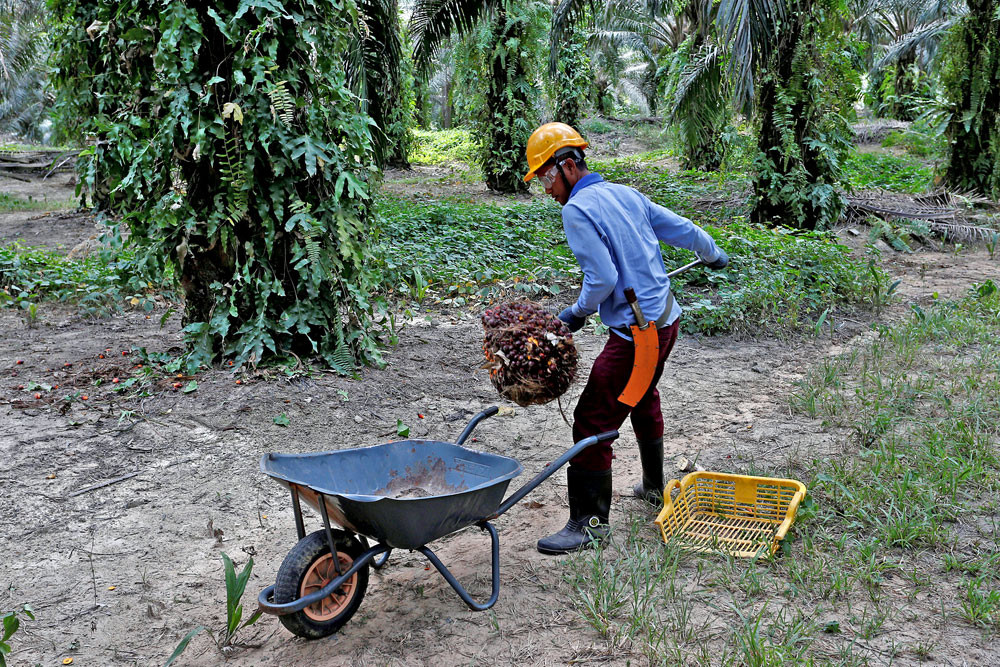Popular Reads
Top Results
Can't find what you're looking for?
View all search resultsPopular Reads
Top Results
Can't find what you're looking for?
View all search resultsEU biofuel directive protectionist, CPOPC says
The Council of Palm Oil Producing Countries has criticized the European Union for introducing what it believes are protectionist measures against palm oil.
Change text size
Gift Premium Articles
to Anyone
 A worker collects palm fruit at a plantation in Bahau, Negeri Sembilan, Malaysia, on Jan. 30. A European Union proposal to limit the use of palm oil lacks comprehensive scientific evidence and breaches global trade rules, Malaysia’s marketing agency for the edible oil said on Friday. (Reuters/Lai Seng Sin)
A worker collects palm fruit at a plantation in Bahau, Negeri Sembilan, Malaysia, on Jan. 30. A European Union proposal to limit the use of palm oil lacks comprehensive scientific evidence and breaches global trade rules, Malaysia’s marketing agency for the edible oil said on Friday. (Reuters/Lai Seng Sin)
T
he Council of Palm Oil Producing Countries (CPOPC) has accused the European Union of political and economic protectionism and using environmental issues for its own interests in the Delegated Regulation Supplementing Directive 2018/2001, also known as the Delegated Act.
The Delegated Act is a derivative of the EU’s Renewable Energy Directive II (RED II) concerning biofuel, including palm oil.
The joint statement was issued on Monday evening following a CPOPC meeting in Brussels co-led by Coordinating Economic Minister Darmin Nasution and Malaysian Ministry of Primary Industry secretary-general Tan Yew Chong.
“CPOPC member countries view the Delegated Act as a form of political compromise within the EU aimed at isolating and excluding palm oil from its [...] renewable energy sector for the benefit of EU rapeseed oil and other less competitive imported vegetable oils,” said the statement.
“This calls into question the whole Delegated Act and the probability that political and economic protectionism rather than science-based decisions were the true drivers of this Delegated Act [...] as a calculated and adverse economic and political strategy to remove palm oil from the EU marketplace.”
The CPOPC claimed the directive's stance on palm oil was based on “unsubstantiated criteria” that deliberately focused on palm oil and deforestation with no attempt to include broader environmental concerns associated with the cultivation of other vegetable oils, such as rapeseed.
The EU's indirect land use change (ILUC) approach to assess the eligibility of biofuels was a “scientifically flawed concept” that classified, for instance, soybeans, as low-risk in terms of its ILUC despite the EU’s own in-house research concluding that soybean was responsible for far more "imported deforestation", it said.
“The CPOPC is of the opinion that the EU is using this Delegated Act to phase out and impose a ban on palm oil imports [...] in order to promote the EU’s own home-grown vegetable oils." (bbn)









